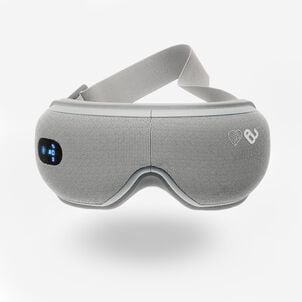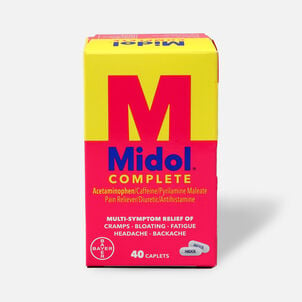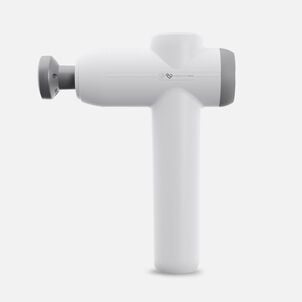"HSA or FSA?" Asking this question is like asking someone, "Lollipops or lobster?" Technically, they're both similar (foods and tax-free health care accounts, to be specific). But comparing the two on an apples-to-apples level isn't going to help you make the right decision for your needs.
In reality, choosing between a health savings account (HSA) and a flexible spending account (FSA) isn't a throwaway decision. On the surface, they're both accounts you can contribute to tax-free to save for medical costs like deductibles, copayments and coinsurance, alongside monthly prescription costs and also to save on everyday health needs from pain relief to baby care to travel essentials. Let's first tackle the HSA.

Are you eligible for an HSA?
Contrary to popular belief, HSAs aren't available to everyone. Only people who have a qualified high-deductible health plan, or HDHP, can select an HSA. These plans have the benefit of lower monthly premiums — a huge win if you're generally healthy — but they require you pay more out of pocket for medical needs until you hit your deductible. Only preventive care like checkups and general wellness visits are usually covered before you hit your deductible.
So, before you even bog yourself down wondering which account is right for you, figuring out which health insurance fits your needs and budget is the real first step. In short, if you're unsure of your ability to pay out of pocket, you might want to think this through.
If an HDHP makes sense for you, though, there are still some things to consider. To qualify for an HSA:
- An HDHP has to be your only health insurance plan
- You must not be eligible for Medicare
- You cannot be claimed as a dependent on someone else's tax return.
- You have to be currently covered under a high-deductible health plan (HDHP)
- You aren't currently on Medicare or supplemental health care plan (including a spouse's employer-sponsored plan)
- You're not considered a dependent under anyone else's tax return
- You're not covered under other disqualifying health coverage, including yours or your spouse's enrollment in a traditional FSA
Also, know that almost all HDHPs are HSA-qualified, but it's always good to double check with your provider before committing during open enrollment.
So, what are the differences between HSAs and FSAs?
Like we implied in the beginning of this guide, people often use the terms "HSA" and "FSA" interchangeably. But other than the purpose of using tax-free funds for medical needs, the accounts are as different as night and day.
Rather than trying to explain this through really long paragraphs, let's break this down in a side-by-side comparison. There are several additional differences between these accounts, like having more flexibility in contributing, the ability to keep your unused balance and additional tax benefits make HSAs a great long-term option, if you're able to do it. But both offer immediate relief for medical expenses.
--
Health savings account (HSA) | Flexible spending account (FSA) | |
Eligibility requirements | Must have a high deductible health plan (HDHP) | No eligibility requirements beyond |
Contribution limit | 2023 contribution max — $3,850 for individuals or $7,750 for families | 2023 contribution max — $3,050 |
Changes to contributions | You can change how much you contribute to the account at any point during the year. | Contribution amounts can be adjusted only at open enrollment or with a qualified life event (QLE) like a change in employment or family status. |
Rollover | Unused funds roll over into the next year. | Funds are "use-it-or-lose-it," if not used by plan deadline, or grace period deadline, or rolled into the next year's total . |
Employment requirement | Your HSA can follow you as you change employment. Additionally, self-employed workers can have an HSA. | Your FSA is tied to your job. You may be able to continue FSA ownership through COBRA. |
Tax impact | Contributions are tax-deductible, but can also be taken out of your pay pre-tax. Growth from interest and/or investment is tax free. | Contributions are pre-tax, and qualified expenses / reimbursements are also untaxed. |
Do I need to consider an HRA?
An HRA is an account designed to pay for medical expenses you incur that your standard health insurance plan does not cover. An annual allowance on spending from the account is established by your employer, which is then used to reimburse you for eligible out-of-pocket medical expenses, after they happen.
Employers also often define what you can use your HRA on, so you may be limited to more common costs like copays and coinsurance, or you may have an HRA that's wide-open to all eligible medical expenses including over-the-counter medications.
How do HRAs work, exactly?
Payments made into an HRA are tax-deductible to your employer, while the reimbursements are tax-free to you. And, much like FSAs, HRAs are owned by your employer. In other words, if you take a new job somewhere else, your HRA isn't making the trip with you. And if you don't use the allotted HRA funds within the defined calendar year, they won't carry over into the following year. In fairness though, HRAs are funded solely by your employer; you're unable to contribute as with an HSA or FSA.
Company-owned HRAs are paid into solely by your employer and the rules around how and when they can be used are also defined by your employer.
With an HRA, only out-of-pocket medical expenses are eligible for reimbursement. This may include out-of-pocket expenses your health plan doesn't cover, as well as other qualified expenses that are defined by the IRS and approved by your employer.
Worth noting
Something listed as an IRS-approved expense won't necessarily be an employer-approved expense. So, you'll want to check with your plan administrator regarding the specifics of what your HRA actually covers.
This is a big contrast to an HSA, where, in addition to your financial contributions, your employer and family members can make contributions. HRAs are real money accounts that accumulate interest over time.
Ultimately, HRAs are accounts designed with the same general goals as FSAs and HSAs. And they can offer advantages depending on your health and financial outlook. Be sure to speak with a financial professional to see if an HRA better suits your family's needs.
Can I have both an HSA and FSA?
As nice as it would be, if you qualify for (and choose) to go the HSA route, you can't also choose to set up a traditional health care FSA. Yes, this includes household situations where your spouse might have separate health insurance, but wants to claim the same dependents. In other words, you cannot benefit as a dependent on someone else's FSA while also maintaining your own separate HSA.
The IRS won't allow for double-dipping of any kind when it comes to tax-free benefits (you can still double dip in your salsa though, so make sure you're in compliance before signing on the dotted line. (We strongly recommend not crossing the IRS on these matters.)
But there are a few exceptions to this "one or the other" rule. A traditional FSA will probably not be compatible with an HSA. And if your spouse elects an FSA that's not compatible with an HSA, your ability to contribute to an HSA goes away, too, since you're technically considered covered under that FSA (whether your spouse adds you as a dependent or not).
But there might be a few exceptions...
Limited-purpose FSA
This type of account typically only allows you to spend money on qualified dental and vision expenses. The account can also be used for your spouse and qualifying dependents including children through age 26.
Remember to check with your plan administrator or HR department about all of the details of your plan, including which plan will automatically pay first. If the plans are set up so that your HSA funds are withdrawn first, you may want to see if it's possible to have FSA-eligible expenses withdrawn from the FSA first, or if you'll have the ability to request that they be transferred from the HSA to the FSA.
Post-deductible FSA
This isn't a common type of account. With a post-deductible FSA, before you hit your minimum deductible for the year, expenses are limited to dental and vision only with this account. Once you hit your minimum HSA deductible for the year, you can use the money from the post-deductible FSA for all qualified medical expenses.
So, which tax-free health account should I get?
There is no "right" answer to this - both accounts have benefits that can make managing your out-of-pocket medical expenses easier throughout the year. But you should opt for an HSA if you qualify, if for no other reason than the limits are higher and you can carry over your contributions from year to year. If you don't qualify, sign up for an FSA.
When deciding on a tax-free health care setup, all of this back and forth needs to boil down to one question — "What do I really want to do with this money?" While FSAs are perfect for covering the costs of everyday medical needs, or offsetting larger expenses, HSAs can do the same, while also serving as a longer-term resource of financial stability.


.png)
















